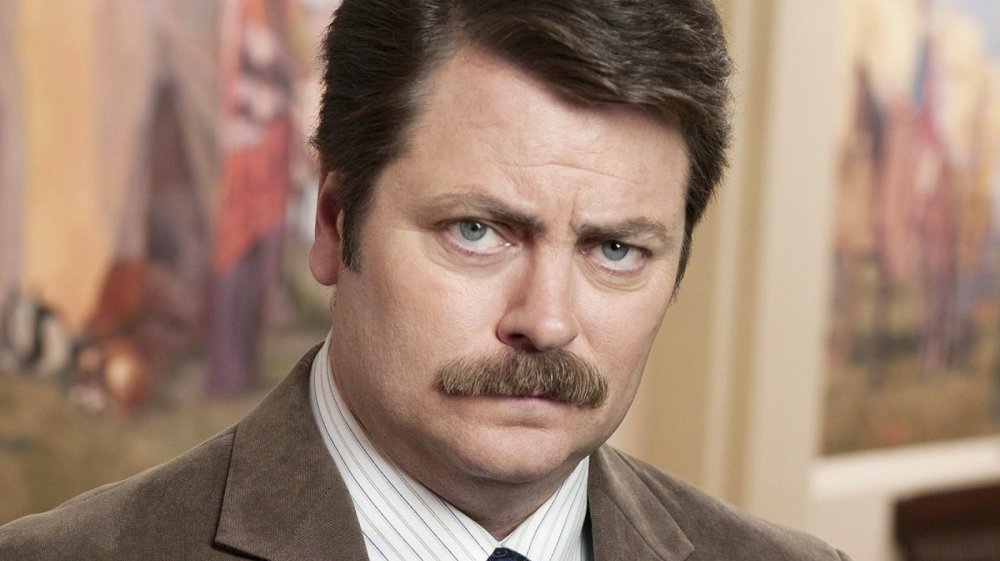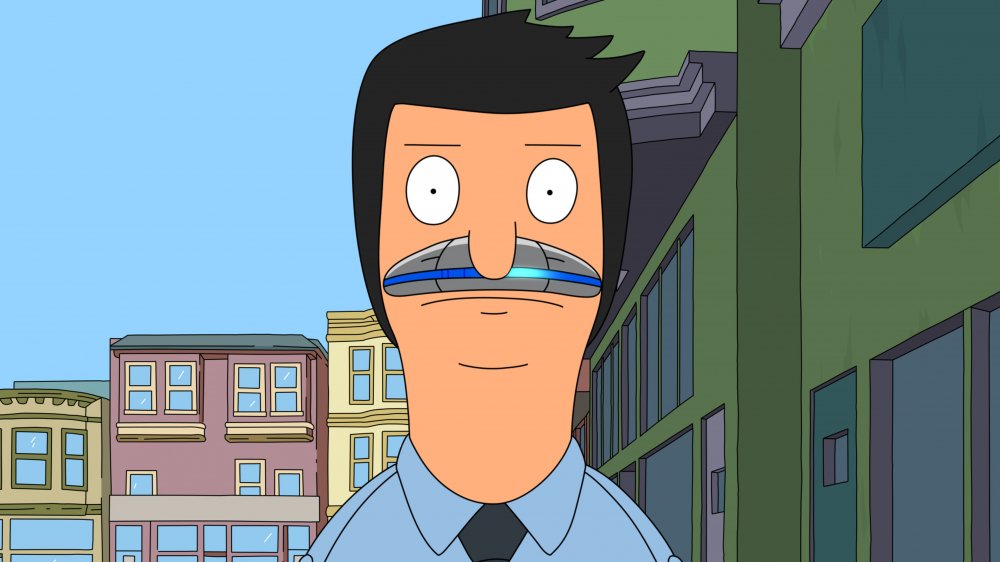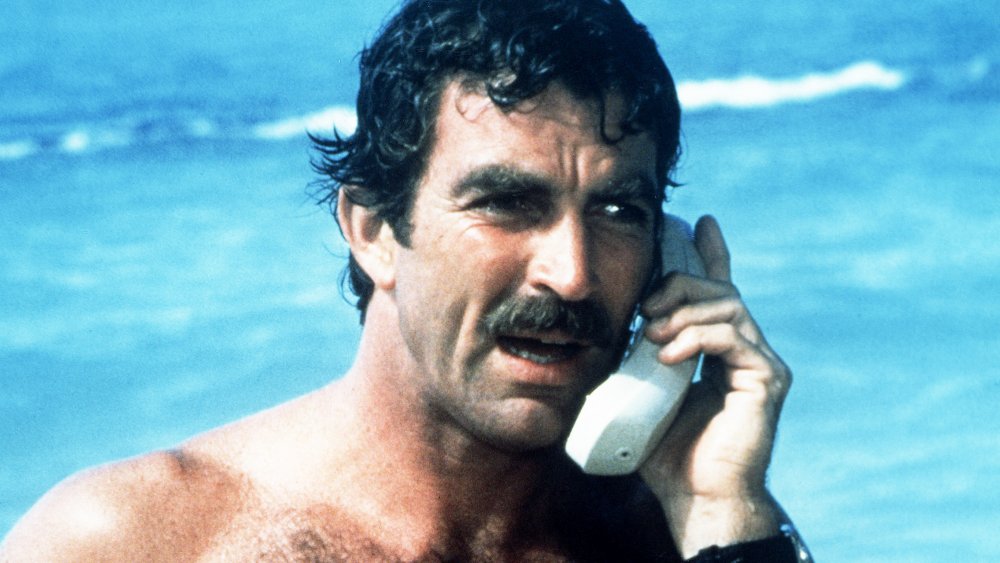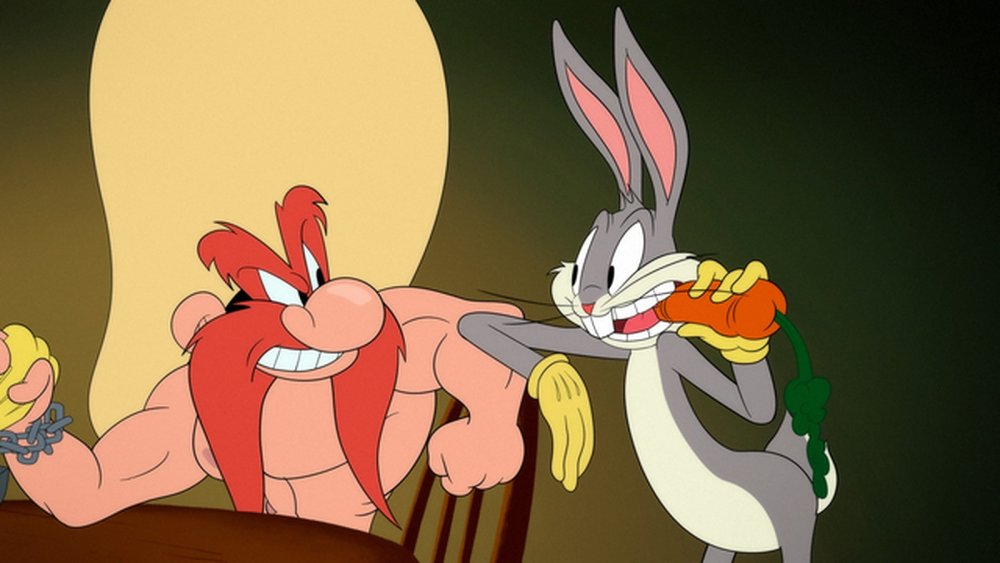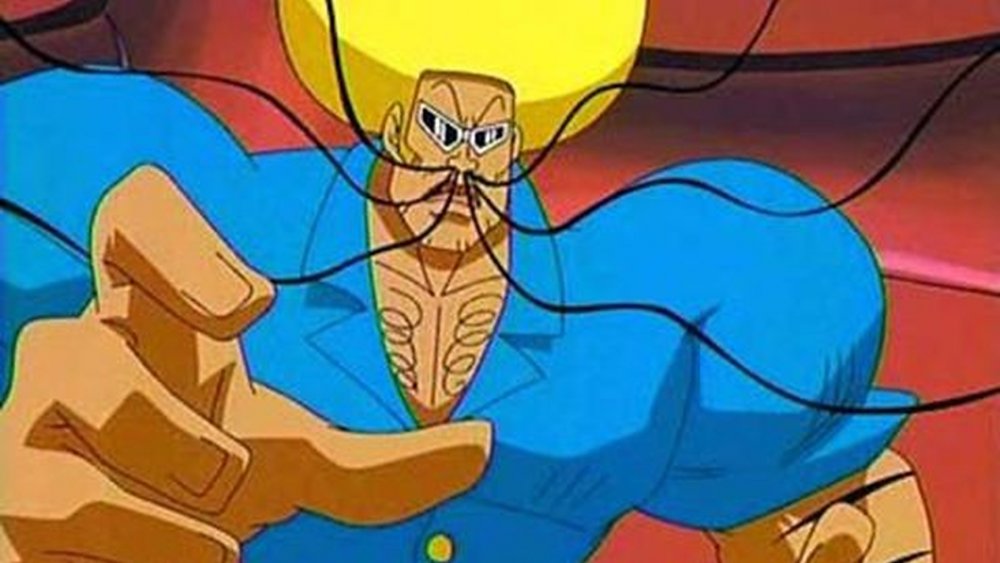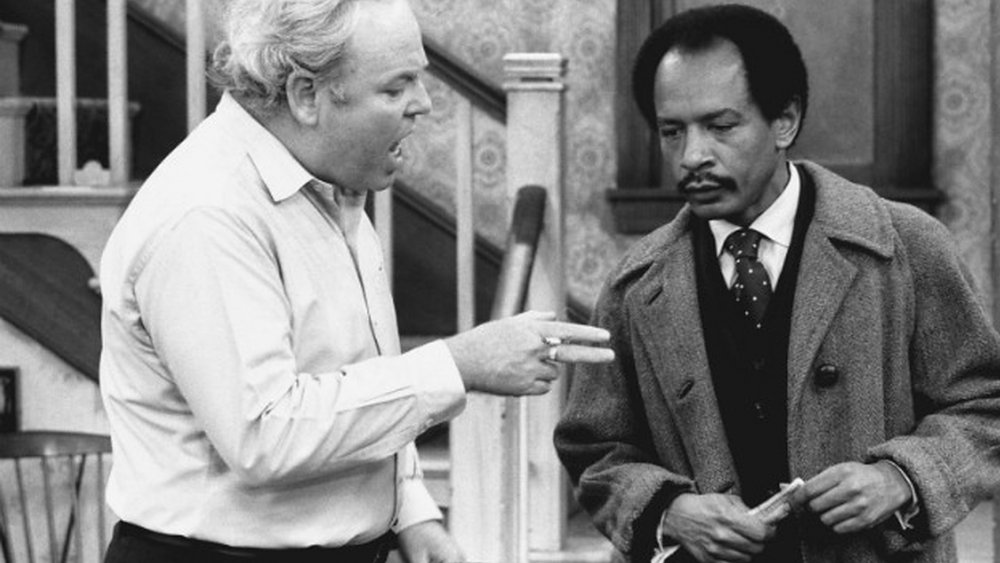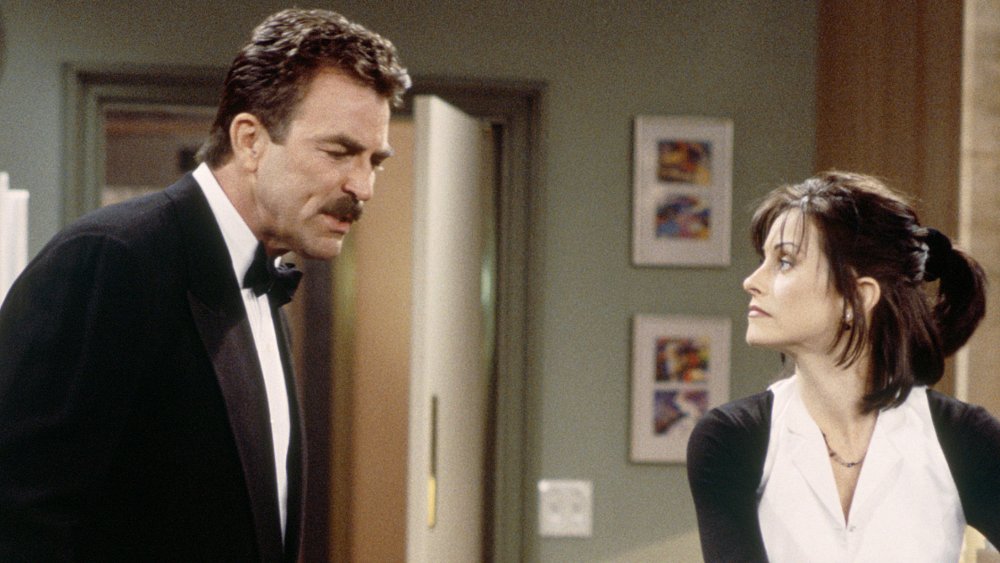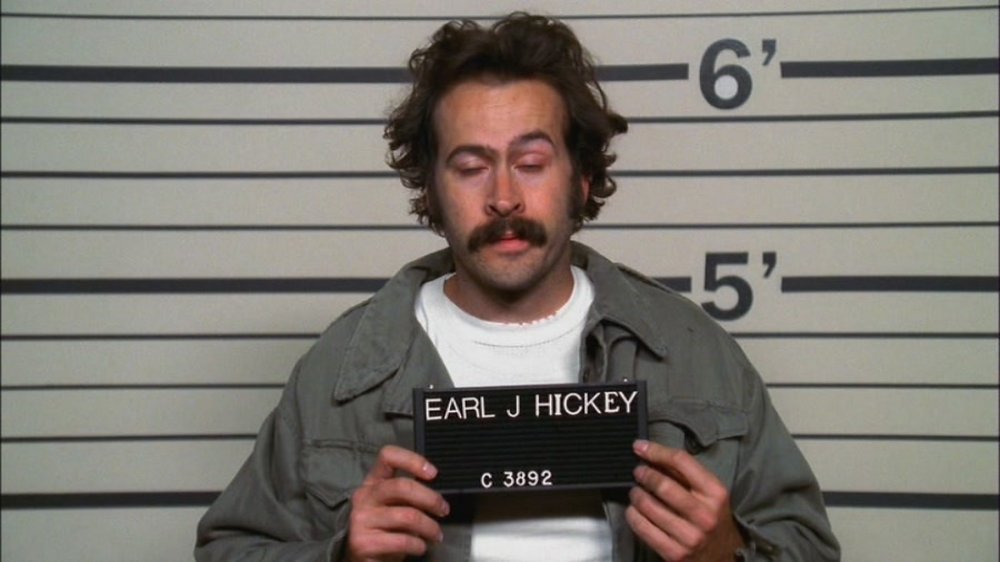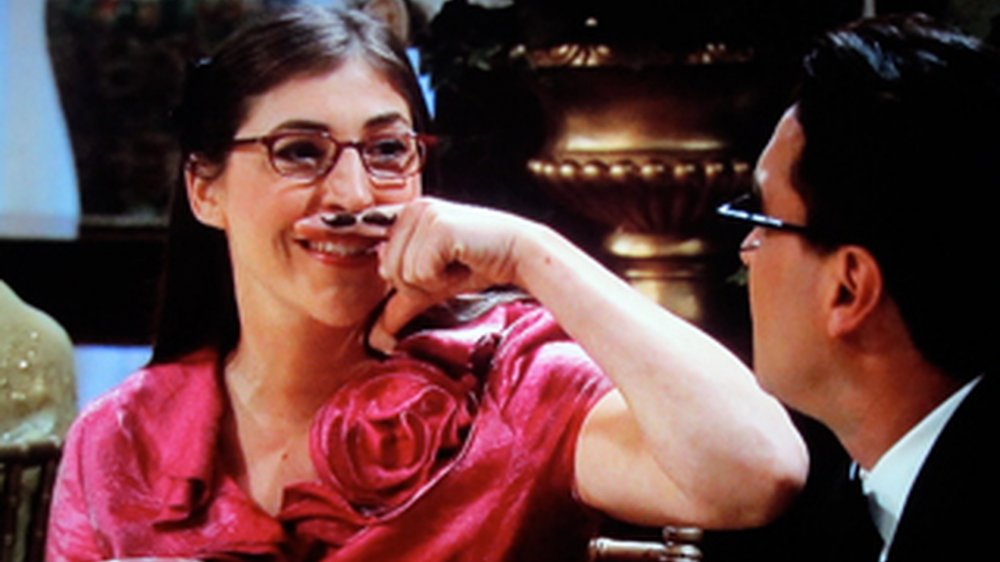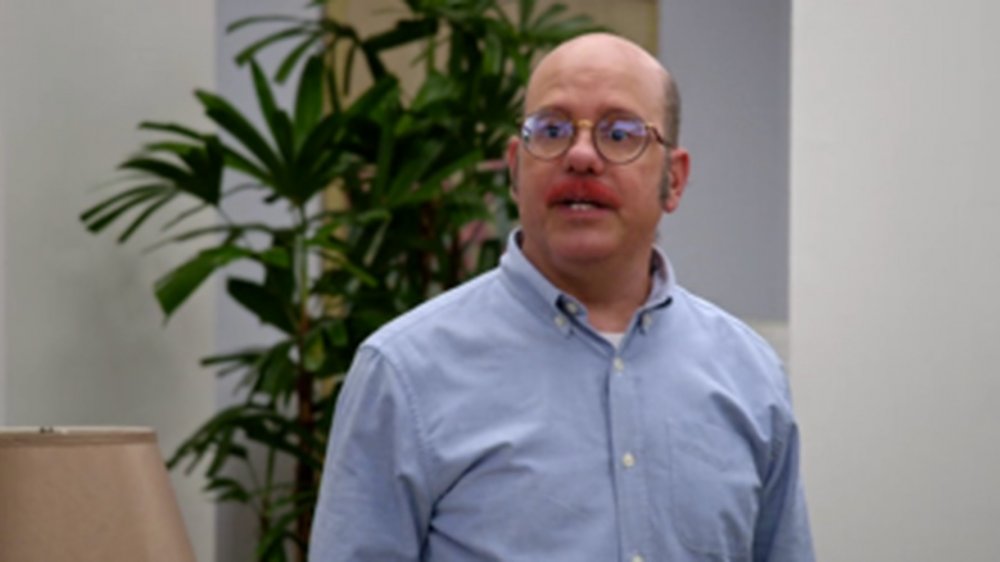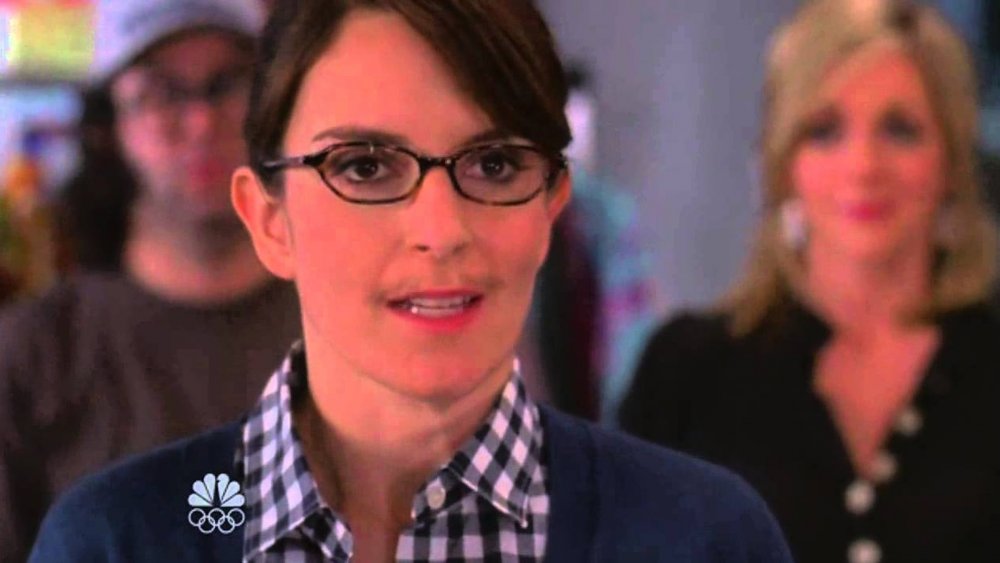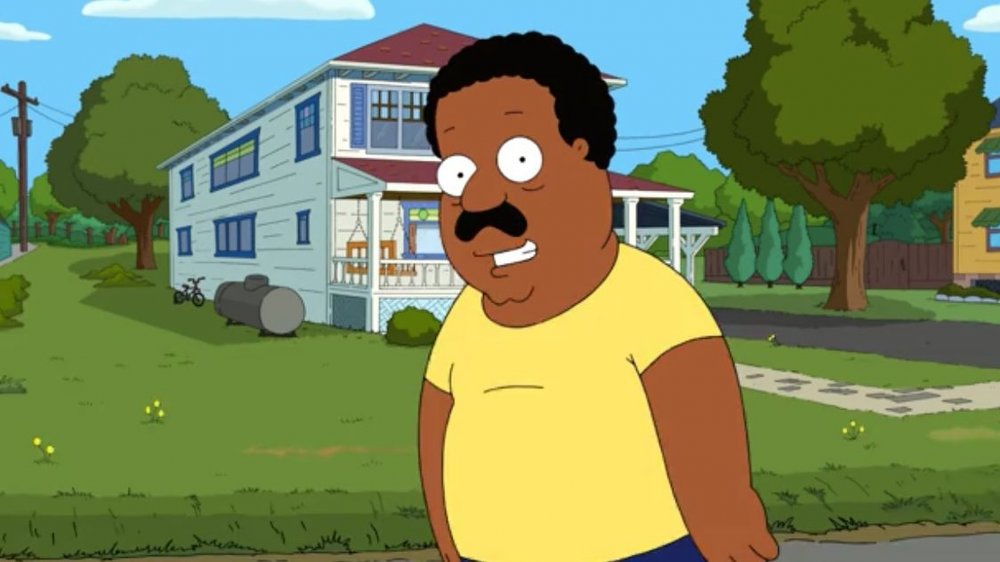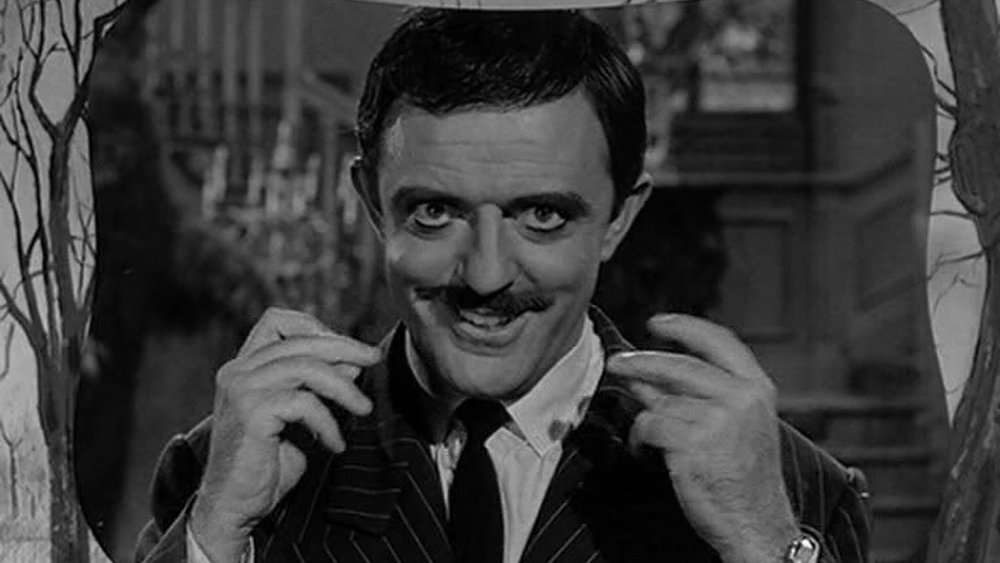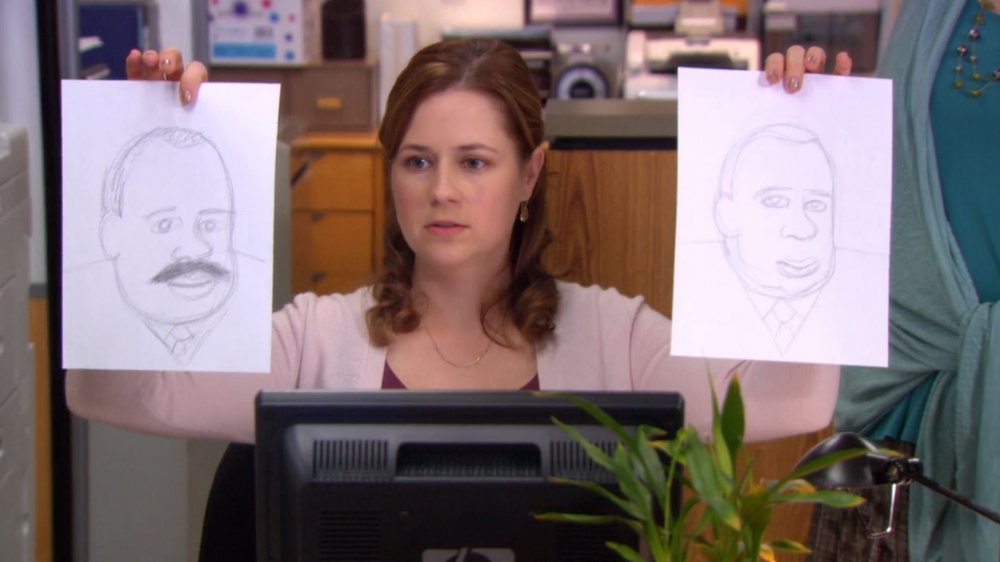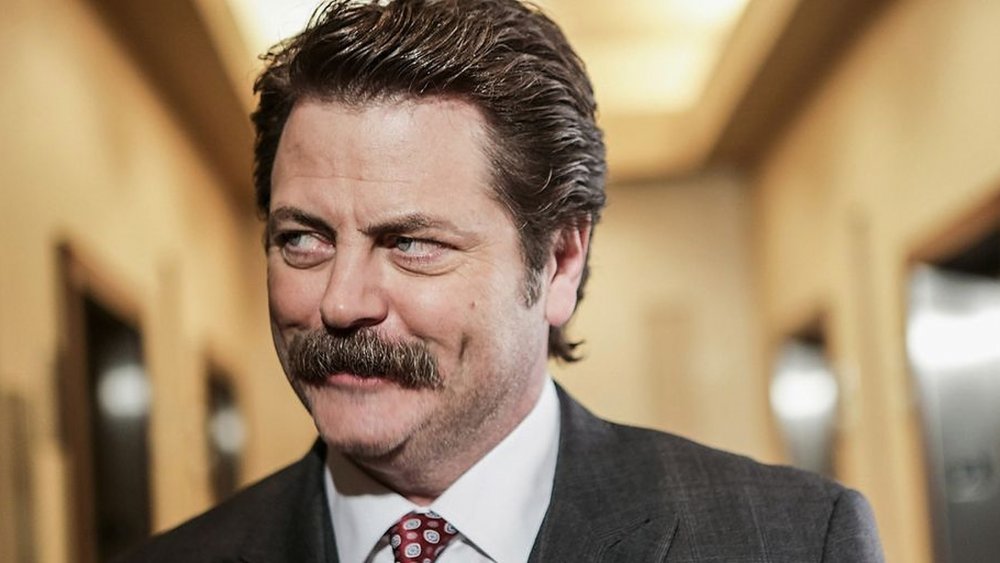The Most Iconic TV Mustaches In History
As in cartoons in which each character wears the same outfit every day, a fictional character's facial hair can come to define them. A good mustache can enhance a face, symbolize a personality, and become a dramatic plot point. Even in the real world, mustaches are loaded with significance. Consider Movember, the annual event in which facial hair is grown to raise awareness about men's health issues. People around the world grow out their mustaches during the month of November as a sign of solidarity with those suffering, to encourage discussion of healthy lifestyle choices, and to spread the word about detection, treatment, and support. The power of a mustache is not to be underestimated: Movember has raised millions of dollars for worthy causes.
It makes sense, then, that so many iconic television characters are defined by their mustaches. Whether the whiskers in question are used to fight crime or woo women, these mustaches are an indispensable part of many of our favorite fictional figures. We're here to examine the best of the best, one hair at a time.
Bob Belcher on Bob's Burgers
Bob Belcher, the titular character on Bob's Burgers, may be poor by traditional measures, but he is rich in facial hair. In the episode "Sliding Bobs," we learn that the Belcher family owes their entire existence to the seductive power of his 'stache. After learning that Bob's mustache is what wooed Linda shortly before she was set to marry Hugo (the health inspector who now torments the shop), the kids each imagine a dark alternate reality that lacks the pivotal mustache. The consequences of face-baldness in these imagined timelines range from Bob failing to woo Linda to him literally dying in an epic Robo-Stache (think X-Men's Cyclops, mustache edition) battle.
Bob's facial hair is a source of pride in a world that threatens to beat him down. His family knows this well — but so do his enemies. In "Sheesh! Cab, Bob?," Tina wants Jimmy Jr. to attend her party so she can kiss him under a disco ball. But Jimmy Pesto, Bob's arch-rival, won't allow it unless Bob gives Pesto his mustache. The gravity of this exchange is something akin to a deal with the devil, which makes Bob's mustache, by extension, a piece of his soul.
Thomas Magnum on Magnum, P.I.
Tom Selleck's mustache features prominently in just about every role he plays, as well as his public persona: The character of Thomas Magnum on the series Magnum, P. I. is a beloved, mustache-centric source of memes as much as he is a celebrated character.
But that's not to say the character and the 'stache don't go together — they very much do. The iconic mustache plays a big role in emphasizing Magnum as a man's man, someone who is good-natured and unflappable but always ready to take charge of a tense situation. Fans see Selleck himself as this type of man, a practical and reliable presence on camera no matter what role he plays. Magnum specifically is a man of valor, being a former POW who was awarded the Purple Heart and Navy Cross for his heroism.
But this military record doesn't mean that the character is rigid. Below that iconic mustache, we very often see the wry smile of a man who values friendship above just about anything else, and is willing to laugh at his own mistakes. This commanding and endearing personality is bolstered by his signature 'stache, which communicates manliness as much as it does approachability.
Yosemite Sam on Looney Tunes
Looney Tunes' Yosemite Sam was designed to be a macho contrast to the bumbling Elmer Fudd, who had long been Bugs Bunny's chief adversary. Sam's aggression conflicts explosively with Bugs' slippery cunning: The gun-slinging prospector describes himself as the roughest and toughest guy around, which Bugs delights in proving wrong.
Sam's mustache embodies his manliness with its dramatic length and flaming color. But we also see in Yosemite Sam the cleverness that mustaches often represent. Elmer Fudd can be duped over and over again with the same trick, but Sam is not so easily fooled. How deeply-rooted are Sam's whiskers? While this might have been unintentional, consider the fact that Sam first appeared in the episode "Hare Trigger." This title is an obvious bit of wordplay regarding his rabbit foe and the volatile nature of his own temper, but the title can also be seen as an allusion to the facial hair that is such an iconic part of the character.
Bobobo-bo Bo-bobo on Bobobo-bo Bo-bobo
Bo-bobo, as he prefers to be called, hero of the anime series Bobobo-bo Bo-bobo, uses his hair to fight crime. It really doesn't get any more iconic than that. Bo-bobo has an unpredictable and somewhat sadistic personality: Despite being on the "good" side of the show's conflicts and caring deeply for his friends, he torments his allies with all kinds of follicle-related mayhem.
The character's entire personality centers around his hair, both that on his head and that on his face. His facial hair is actually not a technical mustache, but rather an extremely powerful set of nose hairs that are constantly mistaken as a mustache by viewers (which could easily fit one or more definitions of the word). This perception earns Bo-bobo a place on this list. Plus, these follicular weapons are far more than mere nose hairs. Not only does Bo-bobo have a rare grasp on the technique of "Hanage Shinken," or "Fist of the Nose Hair," his nose hairs also serve a function for the little booger people (yes, really) who live in his nostrils. Some use them as clotheslines. All mustaches are impressive, but Bo-bobo's goes above and beyond.
George Jefferson on The Jeffersons
It's incredibly hard to picture the entrepreneurial patriarch of The Jeffersons (who also appears on All in the Family and a couple episodes of The Fresh Prince of Bel-Air) without his mustache. The crucial facial feature symbolizes his cleverness and ingenuity, as well as his steadfastness. George, born into a family of Alabama sharecroppers, comes to own a chain of over a half-dozen dry-cleaning stores in New York City. He accomplishes this after dropping out of high school to take care of his mother, joining the Navy during the Korean War, and returning to the States to work as a janitor. To say he's a hard worker is a major understatement.
George's iconic mustache often accentuates his sly smile, in addition to moments of indignation involving George's schemes to advance his business or the life of his family. These machinations often end in either comic relief or a lesson learned, and sometimes both. Like many of the mustachioed men in this list, George is a loving and flawed father who does his best with what he's given, and thankfully, good facial hair genes are among those gifts.
Richard Burke on Friends
One of the things that may play a role in the legendary nature of Tom Selleck's mustache is the fact that he consistently plays such likable characters. On Friends, his character, Richard, is the type of guy you'd want to be your dad. In fact, there are many "old-enough-to-be-your-dad" jokes made at his and Monica's expense, due to their romantic involvement and his advanced age, relative to her. Joey and Chandler love hanging out with Richard, to Monica's surprise and annoyance, until it becomes clear that they think of him as a father figure rather than as "one of the guys."
That Monica's friends look up to Richard so much alludes to the power of the 'stache — or perhaps the power of the man who earns the right to wear it. In "The One Where Old Yeller Dies," Chandler begins growing a mustache himself to great comedic effect, as he seemingly possesses neither the personality nor the genes to pull it off. Therein lies Selleck's power: His mustache is a perfect fit for his personality. Not every man can rock the look, but the ones who can are unforgettable.
Earl on My Name Is Earl
While a mustache might garner respect, it has a dark side. Earl, hero of My Name Is Earl, is the perfect symbol of this. His mustache is part of his loser-ish look, which includes flannels, grungy T-shirts, and unruly hair. It's part of what communicates his lacking lot in life — and accordingly, how dramatically winning the lottery changes things for him.
It may come as a surprise, then, that a battle with NBC execs took place over the facial hair in question. This fight went on for multiple days, ending when Jason Lee just said, "Trust me, I'm funnier with the mustache."
Unfortunately, this would come back to bite Lee. Three years after the show's premiere in 2005, Lee went on record as saying that he "sometimes [regrets]the idea of having one for the show," because filming Earl took seven months of the year.
Amy Farrah Fowler on The Big Bang Theory
The Big Bang Theory's Amy Farrah Fowler is not known for her charm or charisma. In fact, when we first meet her, she is painted as a female Sheldon. Both of them are unfamiliar with most social graces, both of them have an aversion to physical intimacy, and both of them have a tenuous grasp on sarcasm. Suffice it to say that she is definitely not a social butterfly, and this is what we, and Sheldon, love about her.
But there is a lot of hidden depth to this character, which she reaches into at sweet and silly moments to surprise the viewers. In one of these moments, beloved by fans, Leonard insists to her that he is just as much fun as she is. "Really?" Amy replies. "Are you willing to draw a mustache on your finger as a conversational icebreaker?" Lifting her hand to prove it, she challenges him: "I am."
This cute little moment is a quintessential depiction of the character: Amy takes her too-literal understanding of social norms and turns it into something truly adorable. Her finger mustache would definitely do the job of breaking the ice. Step it up, Leonard. The mustache gauntlet has been thrown.
Tobias Fünke on Arrested Development
There is so much that defines Arrested Development's Tobias Fünke as a character, and very little of it is flattering. One might hope that his mustache would be his saving grace, elevating him to the status of macho man that he tries so hard, and fails so dramatically, to achieve. But no: Tobias' mustache only highlights his inability to be the prototypical mustache-sporting man. In "Everyone Gets Atrophy," his flamboyant personality leaks into his facial hair itself, as he dyes it pink in order to play the part of Michael. He apparently thinks this will mask his facial hair. It doesn't.
Perhaps the most interesting thing about Tobias' mustache is the fact that he had to fight for it. At the time the series premiered, Fox had three "comedy rules": No facial hair, no ball caps, and no puffy sleeves. But Tobias' actor David Cross had pictured the character with a mustache from the start, and fought to preserve his vision. Funnily enough, he also wears puffy sleeves when he dresses as a pirate in the very first episode.
Liz Lemon's Tom Selleck on 30 Rock
Tom Selleck's mustache is so iconic that characters on other shows he isn't even on pay homage to it. On NBC's 30 Rock, his "likeness" is used to great comedic effect, as well as to propel the plot past a stalemate in "Black Light Attack!" Jenna suffers a blow to her pride when she realizes that she has been called to audition for a college freshman's mother on Gossip Girl, not the college freshman herself. The wound is exacerbated by the fact that a new and vibrant cast member has joined the show. In order to cut the drama off at the source, Liz implores Jenna to come clean to her cast and crew about her real age. Her bargaining chip is that if Jenna complies, Liz will introduce everyone to Tom. Though viewers don't have any idea who Tom is, Jenna seems to think the revelation of this embarrassing secret is an acceptable trade.
Later, Liz calls the attention of the cast and crew, and announces, "Everyone, I'd like you all to meet Tom. Tom Selleck. He's my mustache." Although it's not nearly as majestic as Selleck's, it's just as unforgettable.
Cleveland on Family Guy and The Cleveland Show
On The Cleveland Show episode "The Curious Case of Jr. Working at the Stool," Cleveland's mustache begins to disappear. Though his doctor chalks it up to a rare form of alopecia, in reality, the mustache is the focus of a revenge plot by Junior, who Cleveland gets fired from his job. Junior slowly trims Cleveland's mustache by increments over the course of several nights, among other pranks aimed at things that matter a lot to his dad.
Cleveland Brown shares many of the qualities of his whiskered compatriots. Though his personality is not distinctly macho, he is portrayed as mild-mannered and steady, a man of tacit, rather than brute strength. Cleveland's quiet, yet undeniable influence is also evident in the Family Guy episode "McStroke," in which Peter discovers an issue of Mustache Aficionado in Cleveland's mailbox and is inspired to grow a mustache himself.
Gomez Addams on The Addams Family
Of his many enrapturing characteristics, Gomez Addams' mustache is among the greatest. His facial hair on the 1964 Addams Family series, in which he is portrayed by John Astin, serves his infamous personality in many ways. For one thing, the mustache alludes to his craftiness and eccentricity, making him look like a Tesla-esque evil genius. At the same time, however, he is a sentimental family man and rather well-known for smoking cigars. In this, his mustache symbolizes his cozier, more family-centric sensibilities.
Gomez has a complicated and versatile personality, with a penchant for (crashing) model trains and a propensity for spending large amounts of money on a whim, as when he buys a tombstone factory and a crocodile farm. His mustache, mood, and modus operandi paint him as a ringmaster of his own circus, where that circus is the entire buyable world, his oddball home, and his strange various hobbies. His law school cohort voted him "Least Likely To Succeed," but his illustrious career(s) and enviable facial hair tell us differently.
Stanley Hudson on The Office
Controversy is a quick path to fame, and this is more or less the path that Stanley Hudson's mustache takes on The Office. A huge debate takes place in "Welcome Party," sparked when the denizens of the office realize they can't remember whether or not Stanley has a mustache. The lovable, disgruntled salesman is returning from a tonsillectomy, and the clock is ticking on answering this thorny question.
What sparks this argument? Someone writing on his get-well-soon card, "Glad they didn't mix up your tonsillectomy with a mustache-ectomy." Jim protests that this caption is "no good," to which some of the employees get annoyed, assuming Jim is trying to hold a monopoly on humor. Jim's qualm, however, is that Stanley doesn't have a mustache at all, and this uncertainty sparks an office-wide discourse on what their coworker, whom they see every day, actually looks like.
Spoiler alert: Stanley does have upper lip hair. What could better accentuate the way he purses his lips when he's forced to deal with, well, anyone?
Ron Swanson on Parks and Recreation
When Ron Swanson is forced into psychological submission by his first ex-wife, it's the fact that she forces him to shave his mustache that alerts us to the fact that he's in real trouble. Ron is the paragon of manliness: Pretty much anything he says (or does) goes. In "Ms. Knope Goes to Washington," when he attempts to slaughter a pig named Tom in front of children for a department-sponsored barbecue in the park, he offers a permit to excuse his bloody use of public grounds. It simply says, "I can do what I want."
Since Ron's word is apparently law, we should be grateful that he has laid it down for posterity in convenient infographic form: Enter the famous Swanson Pyramid of Greatness. Among its tenets are Old Wooden Sailing Ships ("They're beautiful") and Friends ("One to three is sufficient"). The Pyramid has two squares that relate to facial hair. The first is Personal Grooming, which counsels us that only women shave below the neck. The square regarding Facial Hair advises that it should be "full, thick, and square. Nothing sculpted. If you have to sculpt it, that probably means you can't grow it." Wise words.
